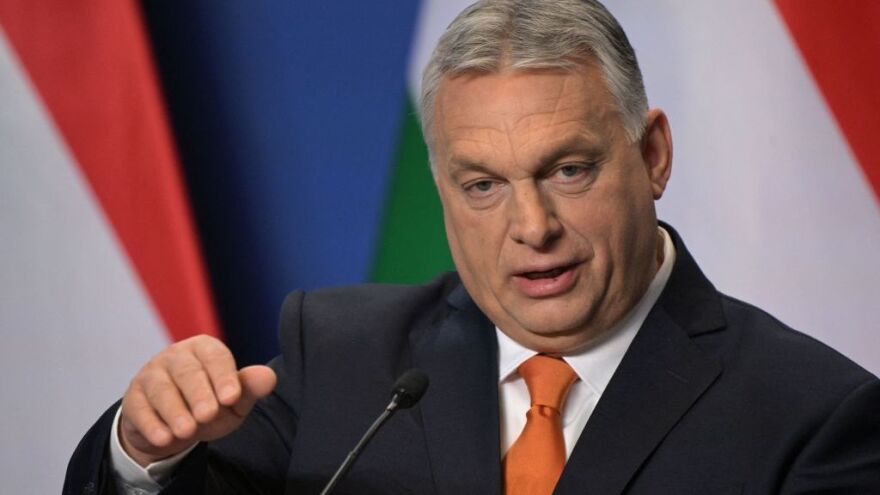The European Union would like to ban imports of Russian oil in retaliation for the invasion of Ukraine, but there's one major obstacle to that effort: Hungary and its prime minister, Viktor Orban.
The move would have to be adopted unanimously to take effect, and so far, Orban has refused to get on board. Negotiations are ongoing.
There are economic reasons for Hungary's refusal, said András Simonyi, a former Hungarian ambassador to the United States who is now with the Atlantic Council.
"The Hungarian oil industry, the Hungarian so-called national oil company, MOL, is dependent on Russia imports for its production," he tells Morning Edition.
But there are also clearly political aspects to the situation, Simonyi adds, starting with the affinity for Putin and Russia's oligarchic regime held by the populist Orban. And Simonyi says there are other factors that might make Orban's government less cooperative with the rest of Europe.
"He has had his own problems unrelated to the Ukraine crisis with the European Commission, related to the rule of law and the state of democracy in Hungary," Simonyi says.
Like Putin, Orban has leveraged his political strength — his party holds a two-thirds majority in the Hungarian legislature — to suppress his country's press and the arts as well as crack down onitsLGBTQ population.
This story first appeared on the Morning Edition live blog.
Copyright 2023 NPR. To see more, visit https://www.npr.org.


